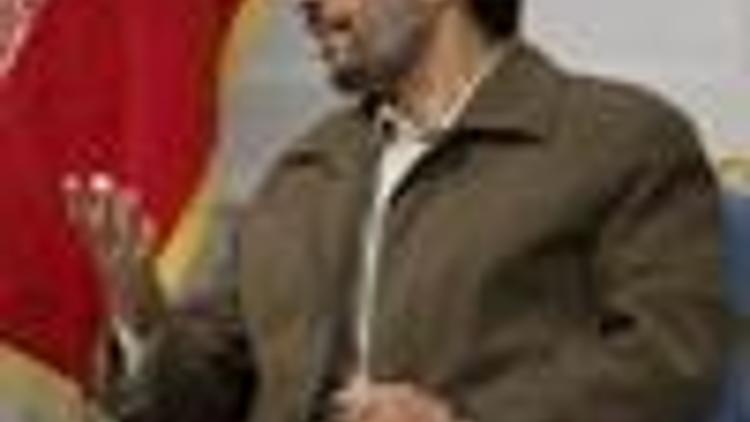Iranians wary of ’change’ slogan
Güncelleme Tarihi:

ISTANBUL - Iranian diplomats express mixed sentiments about the direction the world is taking during their first visit to Turkey since the US election. On President-elect Obama, they are cautiously optimistic. And on the West’s stance on their nuclear ambitions, they are angry. Also, experts weigh in with various perspectives of the issues facing Iran today
Iran has high regard for Turkey’s regional objectivity but a guarded enthusiasm for U.S. President-elect Barack Obama, according to prominent Iranian diplomats at their first meeting in Turkey since the election of the new U.S. president.�
"The slogan of the election in the United States was ’change,’" said Seyed Rasoul Mousavi, director general of the Institute for Political and International Studies, or IPIS. "Now we will see if that slogan was real or not."
Mousavi, speaking at a round table discussion at think-tank Turksih Asian Center for Strategic Studies, or TASAM, said many people were optimistic about real change in the international region particularly toward the continued presence of U.S. troops in Iraq. "If it is true, then it will be very good for our region. If U.S. troops pull out of Iraq, it will be very good for security and stability."
The guarded optimism over Obama’s election, however, was met with pessimism over the direction the world was taking. Mousavi said he thought the world was becoming less secure. "Problems with U.S.-Russia relations, in the Caucasus and in Afghanistan show the world is heading toward insecurity."
Paranoia of the West was reflected in Mousavi’s Afghanistan comments. "There is negotiation between the Taliban and the Karzai government, behind which lies the hands of the CIA, MI-6 and other European agents," Mousavi said. The greatest anger was for America’s stance against Iran’s nuclear plans.
Mousavi said the U.S. had signed an agreement with India, despite India not a part of the Nuclear Non-proliferation Treaty, or NPT, and having shown nuclear ambition. Mousavi said the United States had signed an agreement with India, despite India not being a member of the Nuclear Non-proliferation Treaty, or NPT, and having shown blatant, military nuclear ambitions. With China having signed an analogous treaty with Pakistan and no one in the West criticizing non-NPT Israel, Mousavi said, "The NPT only has one dimension, to be used against Iran’s peaceful nuclear activities. The West just uses it to apply pressure to Iran."
Jalal Kalantari, an ambassador and senior authority in the foreign ministry, said, "The centerpiece of Iran’s nuclear policy has always been to work with the International Atomic Energy Agency, or IAEA."
Using a PowerPoint demonstration, he showed many examples of cooperation between Iran and the IAEA. He also said the agency had "repeatedly confirmed that Iran uses its nuclear resources for peaceful purposes."
After years of strict inspections by the IAEA, a year and a half ago Iran demanded the agency establish a sequential, prioritized and routine inspection process, eliminating the arbitrary inspections that had characterized its dealings with Iran to date. However, Kalantari said, "This working plan was an opportunity for dialogue between both sides, but the United States blocked it."
The Iranian stand off on nuclear technology would set a template for how the West deals with developing countries, he said. "The prescription written for Iran will be the rule for all other developing states and their nuclear activities, if Iran bends."
Vural Altın, a TASAM board member, said America had offered its blessings to the Iranian nuclear program in 1974 under the Shah, and the only thing that had changed was the Islamic revolution.
Political role models
Jelaleddin Nemini, vice general director of the foreign ministry’s West Asia board, said the complicated relationship between Turkey and Iran, positive right up to the Islamic revolution, collapsed after, and is now in an era of "post-rocky relations." He cited the importance of strategic cooperation, saying Iran admired Turkey’s objectivity in diplomacy and it not taking sides. "We admire Turkey’s independence," he said, adding that Iran was happy the two nations that once feared each other had overcome this and had the potential to be political role models for the region.

